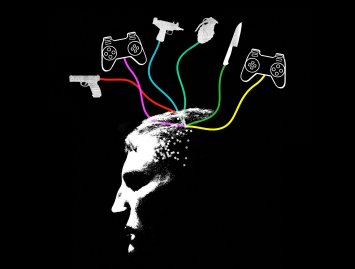The first test I took was the Felder & Solomon Learning Styles Scale. It placed you on a number line, and the more polarized you are, the stronger your leaning towards the learning style is. I scored pretty evenly throughout, only showing a mild/moderate preference on a few occasions.
For instance, when it comes to reflective or active learning, I am ambivalent. If you tell me to solve a problem, I am apt to talk out loud about it for a while and then rush to solving it. I am not a quiet thinker as reflective learners tend to be. I also rarely go into situations prematurely; if anything, I’ll be late in the game because I took too much time planning. I’m okay with group work, however. To cater to this learning style, the website suggests write summaries while I study and teach other students the lesson afterwards. From personal experience, these both work pretty well.
I scored slightly higher on sensing. This one’s fairly accurate. I do dislike complications in problem solving and prefer to have a tried and true method of producing an answer. I’m pretty decent at lab work, and I prefer learning things which are applicable to the real world. Sensing doesn’t fit me, however, since I’m a messy worker despite my outlining. The website suggests I study more efficiently by connecting and applying the materialI have gone over.
Similarly, I am slightly more visual. Generally speaking, I agree. As an artist, it does help me if I stimulate myself with pictures and illustrations, but charts do little in the ways of assisting me. I would rather read the results of data. It suggests I use concept maps (I do), color coding (I do), and seek out additional illustrations to aide in explaining. Sometimes I’ll make a comic out my study material, which helps tons whenever I find the time.
In the last category, I scored as a global learner. This means I should understand the big picture before the specifics, but it is usually the opposite for me. Hm. I do have trouble processing how I arrived at the end of a problem though. The study tips do seem to apply to me because it suggests my tried and true methods of skimming a chapter before lecture and asking an instructor to provide connections.
I liked the simplicity of this test. It offered two different choices without narrowing the situationally applicable options.
The next test was the Learning Style Inventory. It labeled be a tactile learner. I like this term better than the other one, kinetic, because I’m a feeler not a builder. I consider it pretty accurate because I’m always fighting in some way or another. The website suggested I try tracing words with my finger, an interesting concept, but it seems pretty elementary school. I do rewrite my notes sometimes, however, and it helps me heaps. Keeping a piece of scratch paper with me is an old habit I’ve abandoned, but maybe I should start it back up.
This test seems less comprehensive than the last despite there being more options. Additionally, there’s less room for error if you’re only sticking a label on one attribute of a person rather than four.
As for how Austin College caters to my learning style, I’d say it fits the bill fairly well. A lot of these learning habits are better applied solo, I think. If I had any complaints, it’d be pictures since visual accompaniments in power points are not only aesthetically pleasing but help some of us remember the words around it.




